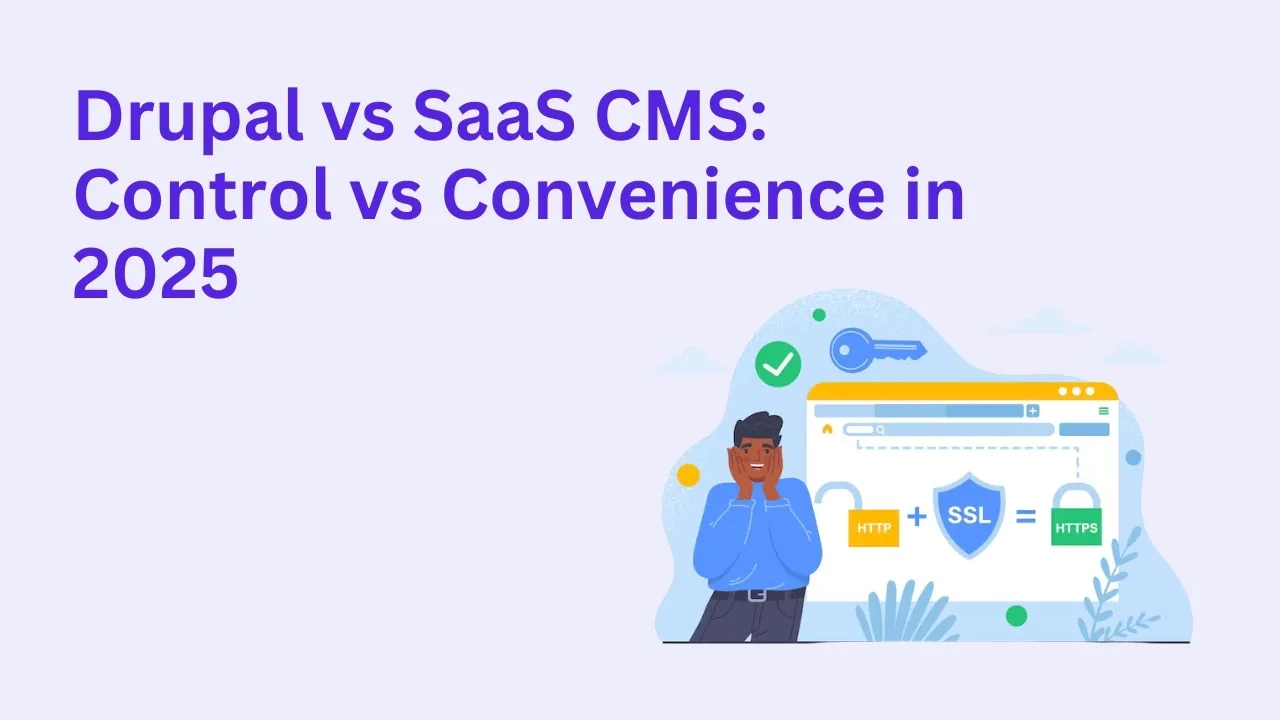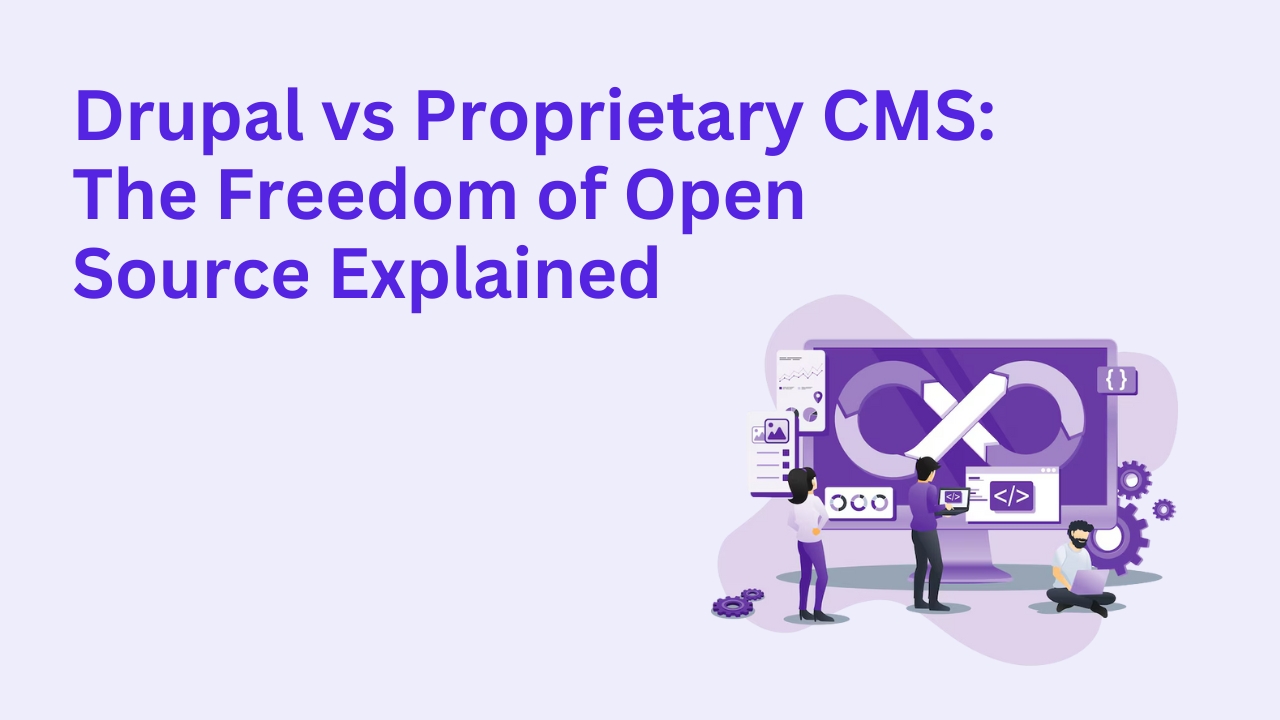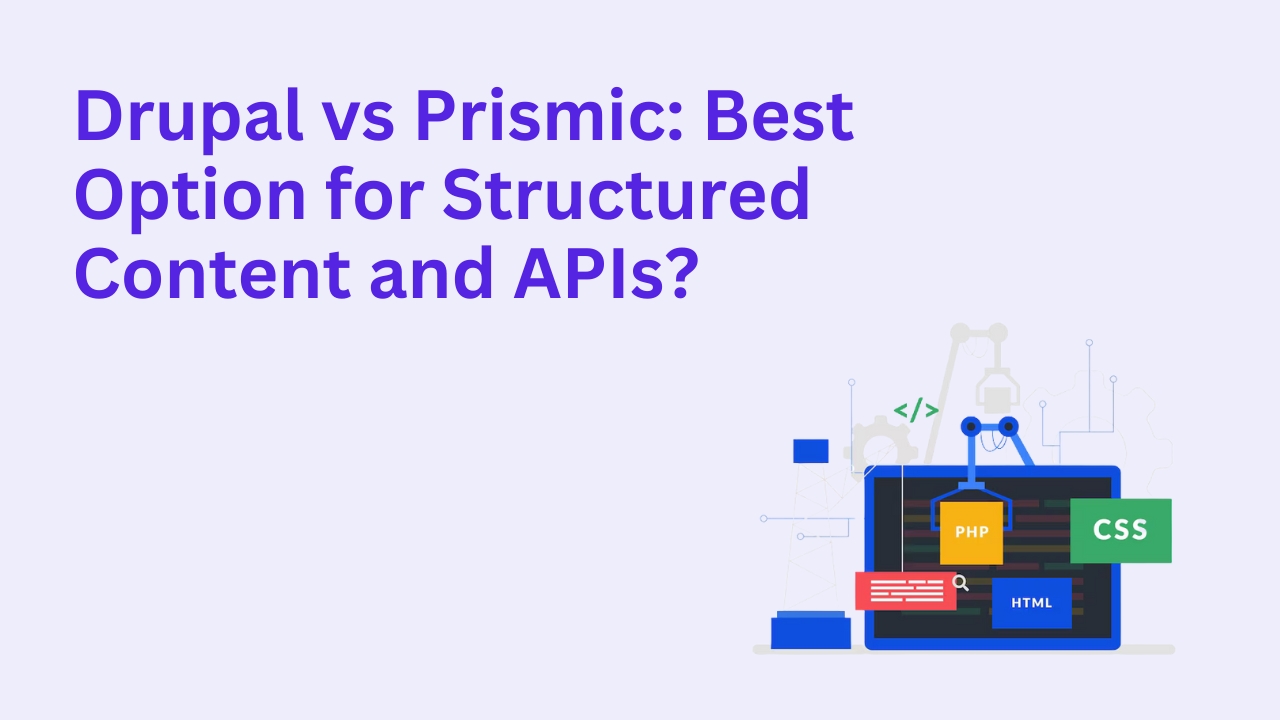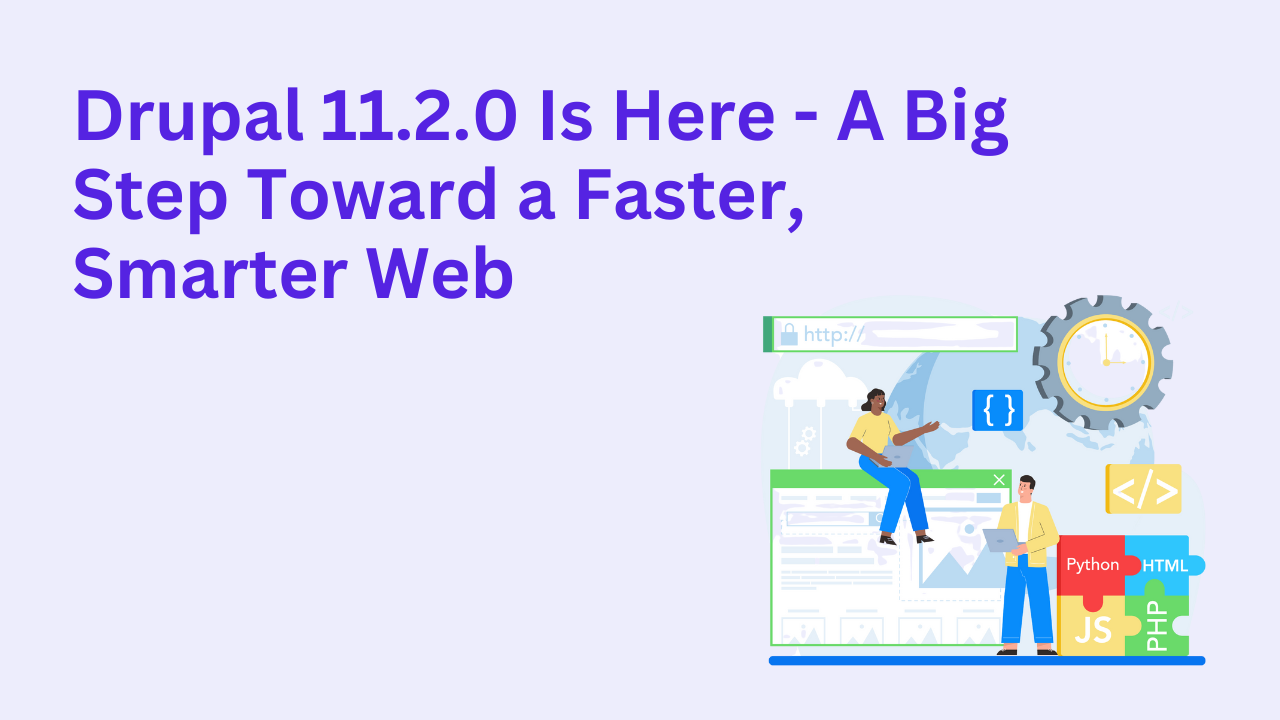Drupal vs SaaS CMS: Control vs Convenience in 2025

Drupal vs SaaS CMS: Control vs Convenience in 2025
In the fast-evolving digital landscape of 2025, choosing the right content management system (CMS) isn't just about technology—it’s about control, scalability, and long-term sustainability. Businesses today are weighing the trade-offs between powerful open-source solutions like Drupal and the ease of use offered by SaaS (Software-as-a-Service) CMS platforms.
If you’re facing this decision, here’s what you need to consider.
What Is a SaaS CMS?
A SaaS CMS is a cloud-hosted content management platform where infrastructure, updates, and maintenance are handled by the provider. Examples include Wix, Squarespace, and Webflow.
They offer speed, ease, and convenience—especially for smaller businesses or early-stage startups that need to launch fast.
But that convenience can come with trade-offs.
What Sets Drupal Apart?
Drupal is an open-source CMS trusted by enterprises, governments, universities, and global brands. It allows complete customization, integration, and scalability—on your terms.
If you want to manage large volumes of content, complex workflows, user permissions, or multilingual capabilities, Drupal offers far more flexibility than most SaaS platforms.
You can explore how Drupalify helps businesses scale with flexible Drupal builds to better understand its enterprise-grade potential.
Ownership and Data Portability
With a SaaS CMS, you're tied to the platform’s ecosystem. Want to migrate your content later? It might not be easy—or even fully possible.
With Drupal, you own everything: your content, database, and codebase. You're not locked in, and your data is always yours.
For businesses that want to avoid vendor lock-in, open-source Drupal is a long-term win.
Customization and Extensibility
SaaS CMS platforms offer templates and plugins, but customization is often limited by their architecture.
Drupal, on the other hand, gives developers full access to the backend. Whether you're integrating third-party tools, creating custom workflows, or building unique content structures, Drupal adapts to your needs.
Need a feature tailored to your operations? You won’t hit a wall with Drupal.
Performance and Scalability
SaaS platforms are often limited by shared infrastructure. If your traffic grows or you want more performance control, you’ll likely hit constraints.
Drupal can be deployed on any hosting environment—from shared servers to enterprise-grade cloud infrastructure—giving you the performance you need without compromise.
And with our Drupal consulting services, we can help you build a stack optimized for performance and growth.
Cost Comparison: SaaS vs Drupal
SaaS CMS platforms have predictable monthly pricing, but long-term costs can climb with add-ons, bandwidth overages, or scaling requirements.
With Drupal, your upfront development cost may be higher, but there are no license fees, and you get full control over your infrastructure. Over time, this often leads to lower total cost of ownership—especially for content-heavy or fast-scaling businesses.
Security and Compliance
Drupal is known for its strong security practices. It's actively maintained by a global community and used by governments and financial institutions.
With SaaS CMS platforms, you're reliant on their internal security practices—and may not be able to customize protections to your standards.
Who Should Choose Drupal?
Choose Drupal if:
You need advanced customization or integrations
Your site is expected to scale significantly
You prioritize long-term control and ownership
You’re in a regulated industry with specific compliance needs
Who Should Choose a SaaS CMS?
Go with a SaaS CMS if:
You’re launching a small site quickly
You don’t need much customization
You prefer not to manage hosting or updates
You’re okay with fewer options for long-term scalability
Let’s Help You Make the Right Choice
If you’re unsure which CMS suits your business, we’re here to help. At Drupalify, we specialize in helping businesses assess their content needs and build tailored solutions—whether it’s a full Drupal build or expert advice to evaluate alternatives.
Book a consultation with our tech team to get clarity on your CMS roadmap.
Final Thoughts
In 2025, convenience is valuable—but control is everything. If your website is core to your business, investing in a flexible, scalable, and secure solution like Drupal can give you the edge.
And with the right partner, the transition can be seamless.








